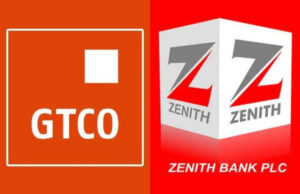Introduction:
Have you ever paused to observe how some brands are just everywhere? They’re on your phone, television, favorite social media sites, and even on that morning billboard you drive by, it’s not magic. Advertising media agencies do this job, they’re the powerhouses behind every brand’s success story,and they come up with the strategies that make these brands stand out.
Whether you own a company, think about working in media, or simply find yourself thinking about how advertising really works, buckle up. We are driving into the field of advertising media agencies—their purpose, operations, and reasons why they are important more than ever in the fast-paced internet age of today.
What Is An Advertising Agency
An advertising agency is responsible for designing, purchasing, and management of ad spots across numerous channels. They connect the brands to the platforms managing the advertising campaigns. Their particular aim is to guarantee the message of a brand reaches the pertinent people at the right time and to avoid waste of money on ineffective placements.
5 Key Responsibilities Of An Advertising Agency
- Media Planning: This involves choosing the best sites, dates, and strategies of advertising.
- Media Buying: It’s the method of negotiating prices and purchasing advertisement space.
- Market Research: This involves studying consumer behaviour, business change, and competitor behaviour.
- Audience Targeting: It involves using data analytics to make sure ads find the right target markets.
- Result Analysis And Modification: It is important to track success and maximise campaigns so as to increase return on investment (ROI).
Advertising agencies basically translate the guessing in advertising into a science.
Types Of Advertising Agencies
Not every media agency was established equal. Different kinds of agencies tackle different areas of advertising depending on the demands of a company.
- Full-Service Media Agencies: These media agencies are the major players doing it all. If a firm requires a one-stop shop for its advertising requirements, this is where they go. Their responsibility ranges from strategising and planning to procurement and analytics.
- Digital Media Agencies: Given the rise of online advertising in this digitalised world, these types of agencies focus solely on digital media.
Their areas of specialty include:
- social media promotion campaigns(Facebook, Instagram, LinkedIn, TikTok)
- search engine marketing(Google ads, Bing ads)
- video advertising initiatives in influencer marketing.
- Standard Media Agencies: These are the old and traditional media agencies that made money and still make money from traditional media such as TV, radio, newspapers, and billboards. This media agency ensures they are first positions in different locations.
- Performance Marketing Agencies: Unlike traditional ad firms, these people are all about observable results. Their areas of focus are campaigns powered by analytics, return on investment, and conversion rates. Every dollar spent has to bring profit.
- Boutique and Niche Agencies: These small businesses either serve certain industries (fashion, technology, real estate) or focus in unorthodox advertising strategies like guerrilla marketing or experiential advertising.
- Public Relations Agencies: These agencies focus on crafting positive public perceptions of brands through strategies such as media relations, press releases, event planning, and crisis management. Unlike advertising, public relations focuses on earned media, intended for companies attempting crisis management, brands aiming to improve their reputation, and those seeking media coverage and influencer endorsements. Weber Schandwick, Edelman, and Fleming Hillard are three possible examples.
- Branding Agencies: These agencies assist firms in establishing their personality through the use of typography, brand voice, logo design, and colour palettes. They craft brand strategies with the intention of altering public perception over the long run. Startups launching a new brand; businesses attempting to build strong brand recognition; enterprises undergoing rebranding. Landor & Fitch, Pentagram, and Interbrand are good examples among the others.
- Event Marketing Agencies: Experiential marketing, live event planning and advertising, brand activations, and trade shows are the specialties of these media agencies. Businesses wishing to introduce new products or activate existing ones; those in the sports and entertainment industries; and those wishing to engage with customers on a more personal level Here are a few examples: Marketing based on personal experience for George P. Johnson; Freeman
The Mechanisms Of Advertising Agencies
Do you ever wonder how a brand transforms from an idea to showing up everywhere on your Instagram feed?
This behind-the-scenes perspective reveals media companies’ handling of affairs.
- Step 1- Appreciate The Objectives Of The Brand
It is imperative that a media agency understands the goals and objectives of a brand before any campaign begins. They need to ask; Is it a new good they are introducing? Are they aiming to boost sales? are they raising brand awareness The solutions for these problems define the whole approach.
- Step 2- Marketing Research
Once they have understood the aim and objectives of the brand, the next step is to carry out marketing research. They analyse consumer behavior, trends in the industry and competitive brands in order to determine:
- the ideal customers
- what media do they use
- how and when they engage with content
More precisely, among data-driven solutions, they use programmatic ad networks, Google Analytics, and Facebook Insights.
- Step3 -Media Strategy & Planning
This is the step where the agencies have to make decisions such as:
- Which platforms will be most effective for the advertisement; would it be televisions orYouTube, Instagram or LinkedIn.
- What formats to use (video, display, influencer collaborations)
- How best should the budget for the advertisement be allocated
For instance, if a brand is focusing on making an advertisement for Gen Z’s, a traditional media campaign would be a waste of funds as this generation hardly fix their eyes on televisions or newspapers. They are always on their phones, therefore, TikTok and Instagram Reels would be much more effective.
- Step 4 -Media Purchases
Agencies bargain for space for advertising using a plan. Their industry contacts enable them to buy TV networks, radio stations, inventory on digital platforms, and more—often at less than a firm could get on its own.
- Step 5- Campaign Organisation And Implementation
Even after starting the advertisement, the work is not done. Agency real-time performance tracking makes necessary adjustments easy. Should an Instagram ad fall short, they either repair it or move the money elsewhere.
Step 6- Analysis and Reporting
Agencies give brands statistics on what worked, what didn’t, and what may be improved for the next campaign at completion.
Significance Of Advertising Media Agency
Given the several media and advertising options available today, companies cannot afford to rely solely on assumptions.
A good media agency would:
- save time; by limiting all the complexity of ad placements
- maximising ad expenditure; by focussing on the correct individuals in the correct locations
- Maintaining trends; helps businesses not to lag behind by means of data-driven strategies to maintain ongoing performance improvement.
Imagine managing a company and trying to match Google’s search results and TikTok trends with Facebook’s continuous ad algorithm updates. This is where Media agencies are significant in helping businesses concentrate on their areas of strongest operation.
The Evolution Of Advertising Media Agencies
The world is changing and so are advertising agencies. There are a few patterns that’ll help define media agencies future. They are:
- Using AI in ad purchasing: artificial intelligence and automation is effective in guiding purchases of advertising. Real-time data analysis provided by AI-driven technologies maximizes placements free from human involvement.
- More involvement of influencers: agencies would increasingly engage content creators and micro-influencers to create brand connections.
- Privacy and Data modification: New privacy regulations force agencies to devise creative approaches to target groups free from reliance on outside cookies.
- The growth of immersive advertising: Virtual reality (VR), augmented reality (AR), and interactive ads include more and more fascinating ad experiences.
- The strength of First-Party Data As third-party cookies disappear, companies are leveraging their own customer data to fuel increasingly sophisticated advertising campaigns. Agencies help businesses to correctly compile and use this information.
Conclusion
Advertising media corporations have a general influence even though they operate behind the scenes.
They dictate how companies expand, how people come across new brands, and how advertising changes in a culture going digital.
Choosing the appropriate media agency could be the best move you have ever made if you run a company trying for growth.
And should you also give advertising some thought as a career? Absolutely, this is an intriguing period to investigate, given the media environment is just growing bigger, smarter, and more innovative.
As a leading media agency with over 12 years of experience in crafting tailored advertising strategies, Slice Media Solutions has helped brands achieve significant visibility and engagement through effective media placement and creative campaigns.
As a leading media agency with over 12 years of experience in crafting tailored advertising strategies, Slice Media Solution has helped brands achieve significant visibility and engagement through effective media placement and creative campaigns.




